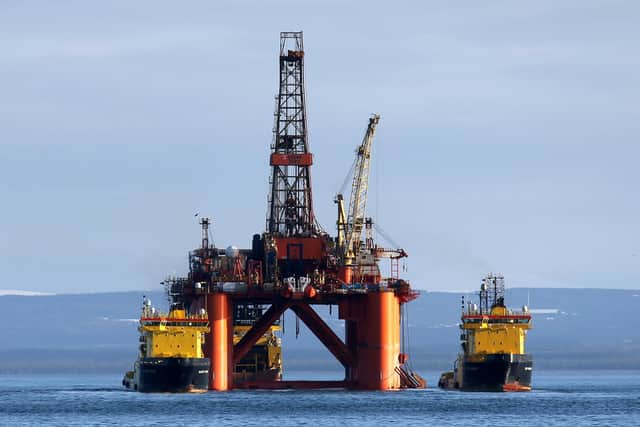North Sea oil and gas firms claim windfall tax is forcing them to cut production
Offshore Energies UK (OEUK) has published a report that said more than 90 per cent of offshore firms are slashing investment in drilling operations, meaning around 250 million barrels of oil equivalent will not be produced and another 250 million are less likely to be produced.
The trade association said domestic oil production has dropped by 26 per cent since 2018, meaning the UK is becoming more reliant on overseas imports.
Advertisement
Hide AdAdvertisement
Hide AdAround 76 per cent of the country’s energy was produced by oil and gas last year, up from 75 per cent the previous year.


It comes after the Energy Profits Levy, known as the windfall tax on oil and gas profits, rose to 35 per cent in January, taking each company’s overall tax rate to 75 per cent.
The levy, which will remain in place until March 2028, was introduced after firms recorded bumper profits when the invasion of Ukraine severely disrupted Europe’s energy supplies and caused wholesale prices to soar.
The Government also allows companies to claim £91.40 in tax relief for every £100 they invest in oil and gas extraction but Labour has promised to scrap this allowance if it wins the next election.
Advertisement
Hide AdAdvertisement
Hide AdThe OEUK said production could fall by up to 15 per cent a yearby 2030 as high taxes are “driving investment out of the sector” and firms are also struggling to get approval for new oil and gas fields.
The windfall tax cost BP $700m (£583m), Shell $134m (£108m) and British Gas owner Centrica £54m last year, when the three companies also recorded record profits totalling £58.5bn.
Ross Dornan, OEUK’s market intelligence manager, said: “There is no simple choice between oil and gas on the one hand and renewables on the other.
“The reality is that to keep the lights on and grow our economy we need both. By the mid-2030s, according to the Climate Change Committee, oil and gas will still provide half our energy needs.
Advertisement
Hide AdAdvertisement
Hide Ad“We should be aiming to get as much as possible of that energy from our own resources – meaning the North Sea.
“That makes it essential for the UK to attract investment. The alternative is to become ever-more reliant on other countries.”
He added: “That net-zero transition will need £1.4 trillion of investment, which should be benefiting British companies and workers.
“But the current windfall levies and political statements about the future of such levies risk driving that investment away.”
Advertisement
Hide AdAdvertisement
Hide AdHe said the tax hike would give the Government a short-term boost but the long-term impact could be “disastrous for consumers and the economy.”
A Treasury spokesman said: “The Energy Profits Levy strikes a balance between funding cost-of-living support from excess profits while encouraging investment to bolster the UK’s energy security.
“We have been clear that we want to encourage reinvestment of the sector’s profits to support the economy, jobs and our energy security, which is why the more investment a firm makes into the UK, the less tax they will pay.”